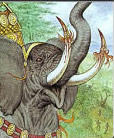Forum
Welcome Guest |
|
|---|---|
 Author Author |
Topic: |
|---|
| PotbellyHairyfoot |
|
||||||||
| BelleBayard |
|
||||||||
| Gandolorin |
|
||||||||
| ElwingAndEarendil |
|
||||||||
| Gandolorin |
|
||||||||
| ElwingAndEarendil |
|
||||||||
| Gandolorin |
|
||||||||
| Elfeawen Lomiondil |
|
||||||||
| Gandolorin | |||||||||
| Elfeawen Lomiondil |
|
||||||||
| Neenime |
|
||||||||
| Members Online |









 QS 6 Chapter quote
QS 6 Chapter quote


